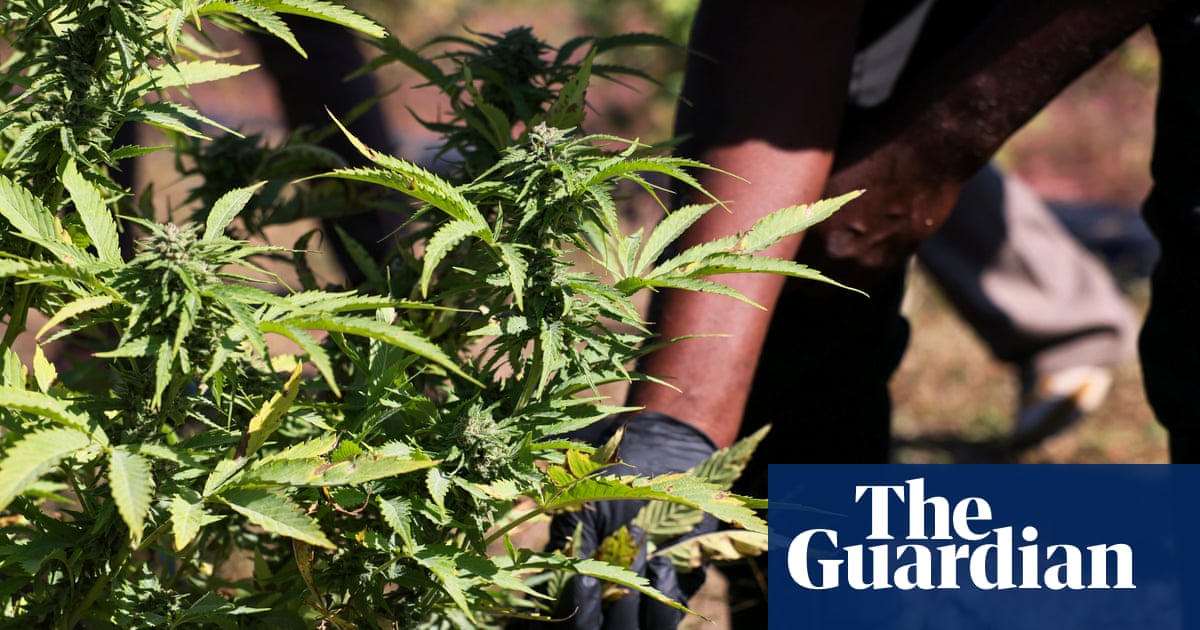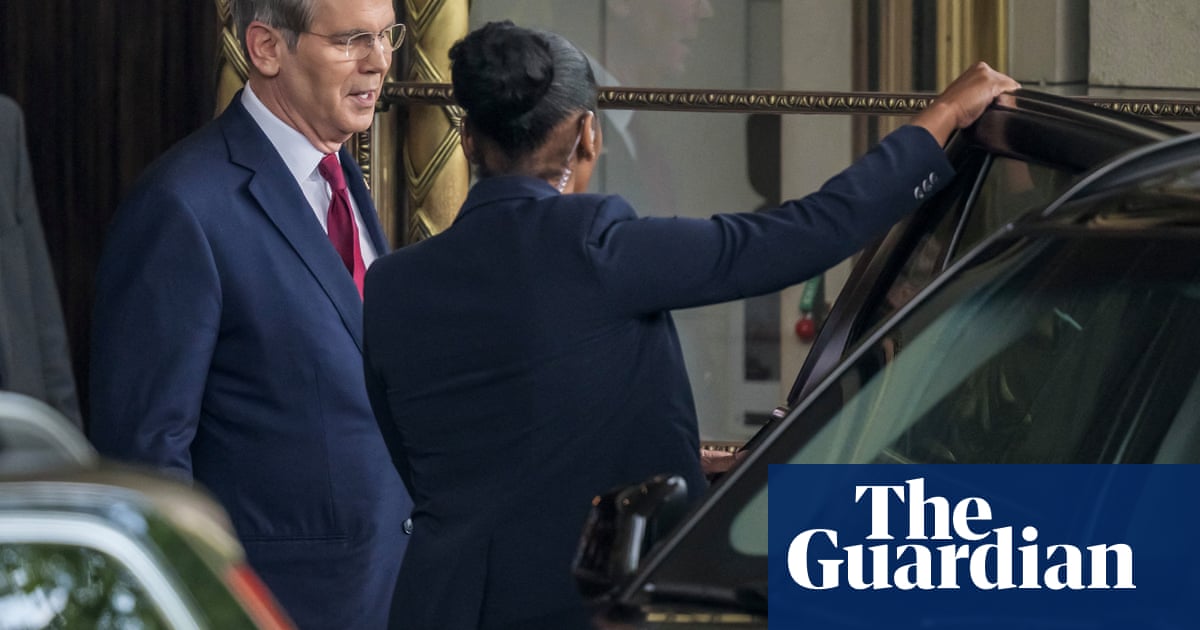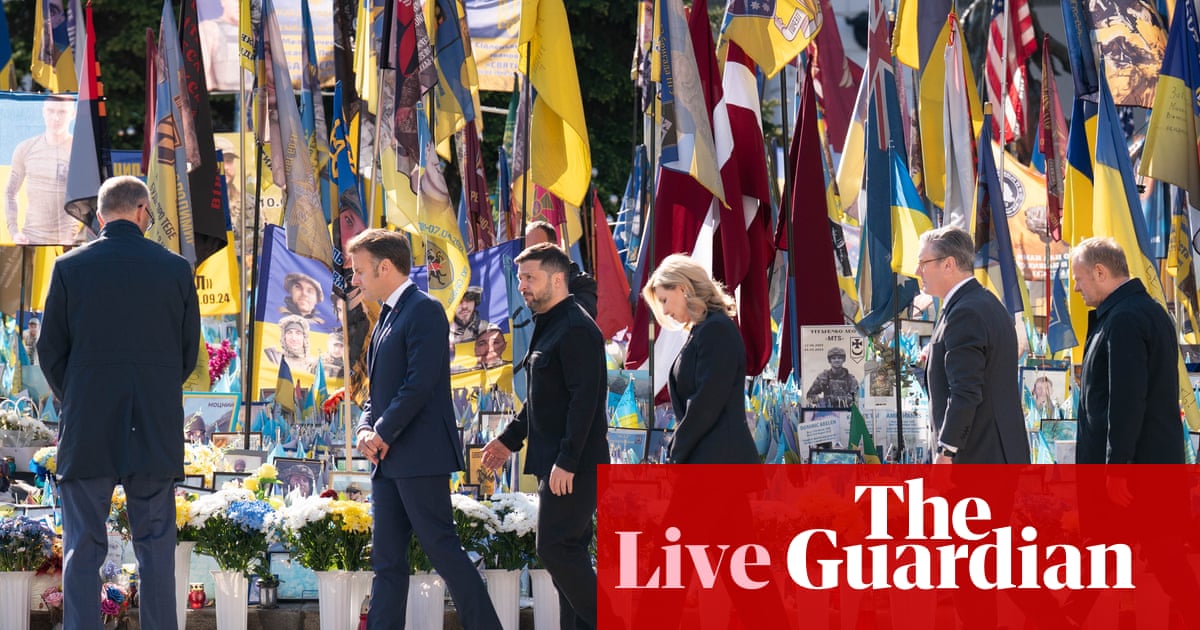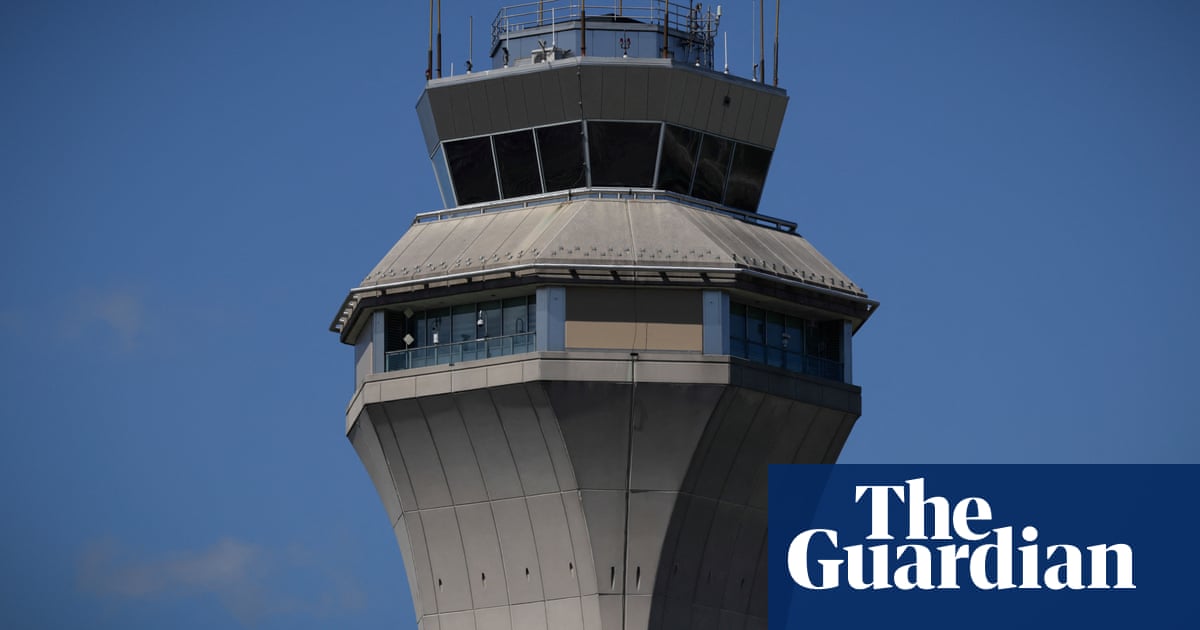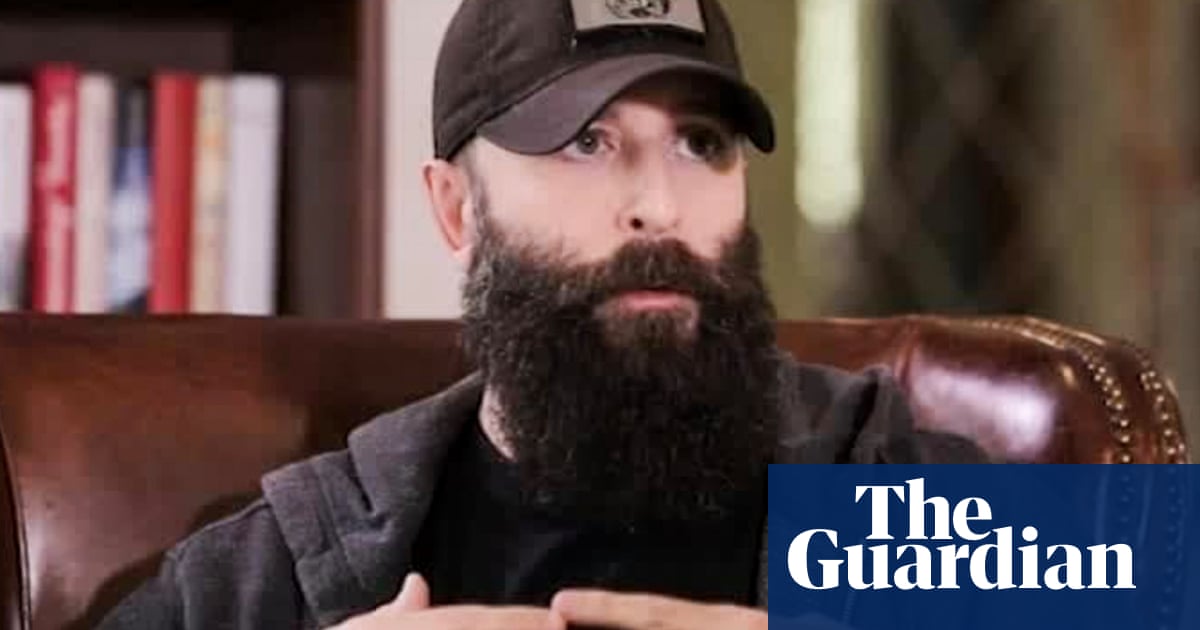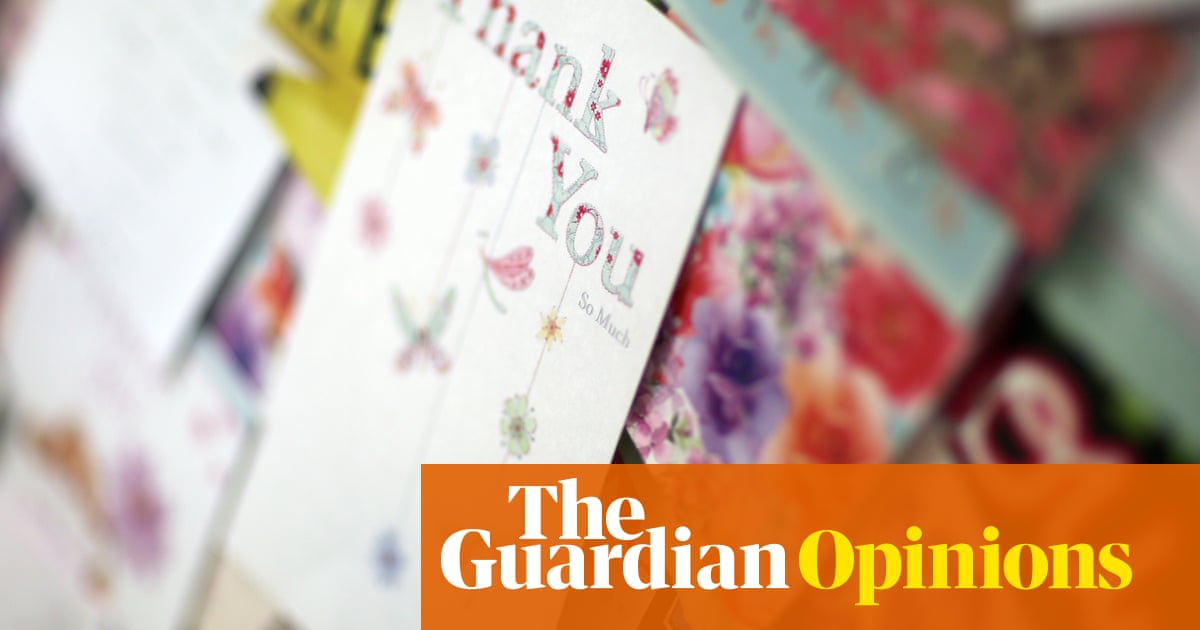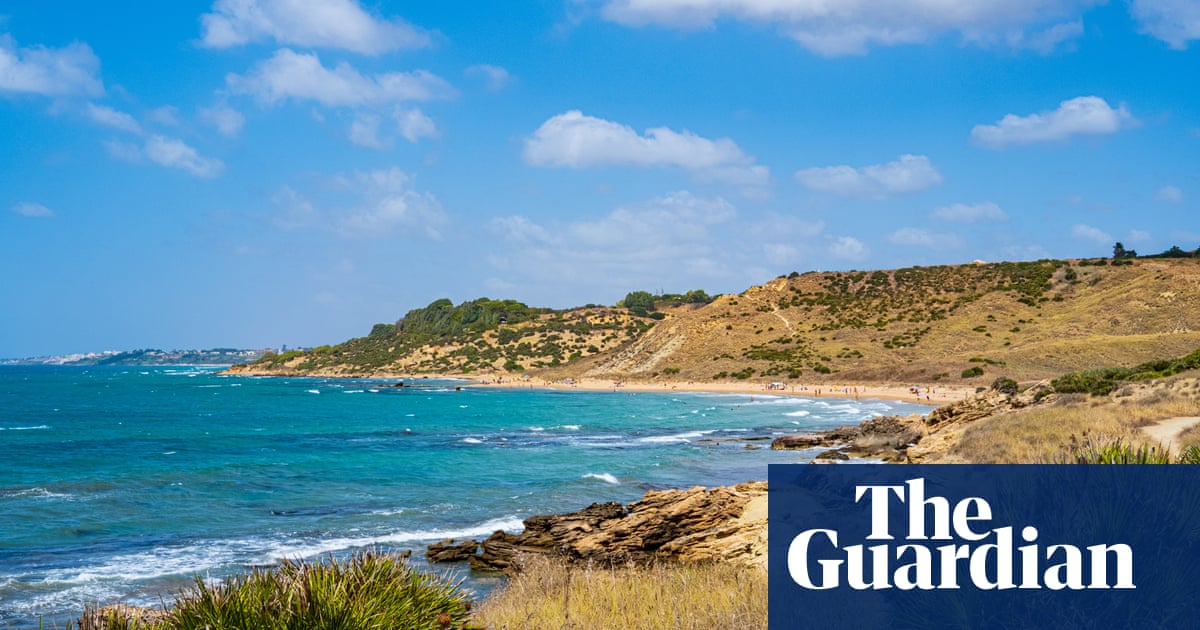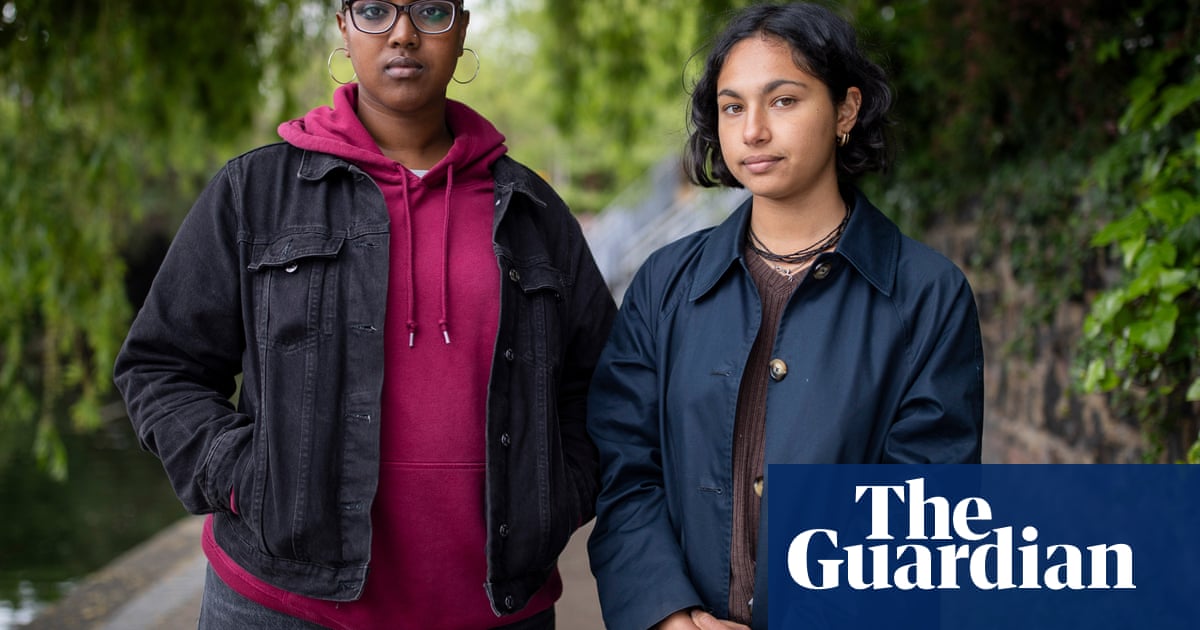When Marcus Beer and Shawna Dawson Beer first returned to their charred Altadena home, they were in shock. Visiting the Los Angeles neighbourhood for the second time last weekend, they fully comprehended the destruction.
“It very quickly felt like a graveyard,” Shawna said. When they arrived, the couple said someone had tied pink ribbons with black polka dots on trees and buildings on their street, which floated in the breeze and looked pretty. “I thought it was a solidarity thing, and thought, ‘Oh, isn’t that really nice’,” Marcus said. “But we found out it meant the cadaver dogs had gone by and no bodies had been found on the property.”

The couple described a hopeless real estate market in the aftermath of losing their California home to the flames. They said that after viewing two properties a real estate agent told them there were at least 7,000 displaced Altadena families looking for new homes, battling to rent small apartments “for obscene amounts of money”. Marcus and Shawna felt lucky that a friend was able to offer them a guest house for six months, almost 50 miles from their former home, in Corona del Mar.
They said a sense of uncertainty was now their overwhelming feeling as they faced the reality of loss and dislocation from the fires.

Marcus, a 54-year-old video games consultant, said he had been “disgusted” to receive cold calls from companies trying to buy their land in Altadena. The stress is compounded by the fact that Marcus has stage 4 prostate cancer. He said chest pains forced him to attend the ER, where medical professionals said he was exhausted, stressed and had inhaled too many fumes, adding to a sense of disorientation.
Paul Kewley, a 54-year-old British expat and feature film animation producer, who had been renting a house on Lachman Lane in Pacific Palisades with his wife and teenage son, said his neighbourhood was “a scene of utter devastation”.
“The fires ravaged the area we lived in, but our house remains standing,” he said. “Next door has burnt down, as have many houses above and below that.”

As the family has found shelter at a friend’s house in the LA neighbourhood of Westchester for a few weeks, the full scale of the fallout from this catastrophe, Kewley said, was still coming into focus.
They had been given “conflicting advice”, he said, about whether to take the first rental property offered to them, or whether to apply more caution in order to not fall victim to rampantly inflated rents.
“My best friend bought [a house] in the Palisades and lost everything. We won’t be able to return to ours. Everything inside smells of smoke, much will have to be thrown away. The long-term financial consequences are most likely to be felt as we attempt to find a new home, as so many others. In their desperation, people are paying way over asking prices, price gouging is everywhere.
“The most traumatic thing however is losing our community. We’ve talked about leaving the city, and whether we’d want to live in the area again. We love this city, and our son wants to stay, but there’s just so many unknowns.”
Ed Stokes, 80, a retired radio broadcaster, was at a doctor’s appointment downtown when his wife was told to rapidly evacuate the couple’s Pacific Palisades condo, a second home they spend parts of the year in to be closer to their children and grandchildren.
“My wife witnessed dramatic, apocalyptic scenes,” Stokes said. “People evacuating got stuck in traffic, panicked as the fire came closer, abandoned their cars and ran. Bulldozers then had to manhandle these cars off the road, to let the firefighters through. Parents ran up the hill to pull their children out of Calvary Christian elementary school, then fled downhill again carrying them. It was horrendous.”
The couple checked into a hotel, with only their passports, toothbrushes and their most important medications. “For three days, we watched our homes and community on fire,” Stokes said. “My son’s home, where he is raising his children, burned down, it’s all gone. Our condominium is structurally intact, but access is still restricted, I’ve seen pictures of it on YouTube. We have not yet been allowed in to assess smoke damage. We’re in shock, but among the fortunate.”

Stokes and his wife left the city and are staying with family in Montana with no plans to return yet, while many of their LA friends and neighbours are scattered in various other places. “One friend who lived in the Palisades all his life has lost everything, and it’s a similar story with another friend,” Stokes said. “Some are now in the desert, some are up in the mountains, they’ve all gone wherever they could find some sort of refuge. The community is devastated.”
Simon de Veer, a personal trainer in his 40s who primarily served clients in Pacific Palisades, was among many who struggled to predict how they were going to be affected by the fires.
“At least 10 people I know have lost their homes,” he said. “[Monday] was my first day back [at work] since the Palisades fire broke out. I commuted into the burned area to train with clients whose home has survived.” De Veer spent a week evacuating family and friends from other fires in LA, while most of his customers were displaced. Some of his clients ended up staying at his house, and at some point he was bedridden for 24 hours due to smoke inhalation.

“We’re coming together, but no one really knows what we’re doing besides that,” he said. “Until the fires, there was this thrust of gardeners, nannies, cleaners and so on who commuted into the Palisades from other parts of the city. There’s a guy who used to have a taco truck there. I don’t know what he will do next.
“I don’t know what I’m going to do, I’m unsure if I’ll be able to bring my training business back to what it was. Many of my clients are leaving for an unknown amount of time. Food is still expensive, I have a daughter. I have been working on a new business [in real estate] to make myself a bit more resilient.”
De Veer said about 80% of his clients had either lost their home or lived in an area they would not want to return to due to the scale of the devastation.
“It hurts, but most of us are committed to rebuilding,” De Veer, whose wife is a casting director, said. “I will not abandon my clients, the people who have believed in me and my little fitness classes for so long. I genuinely care about them all. I have no idea what [my life] will look like in a year’s time, I just want to bring the city back.”

 3 months ago
39
3 months ago
39


